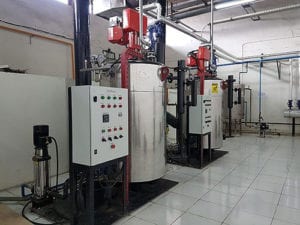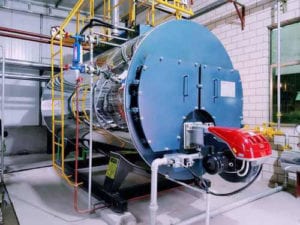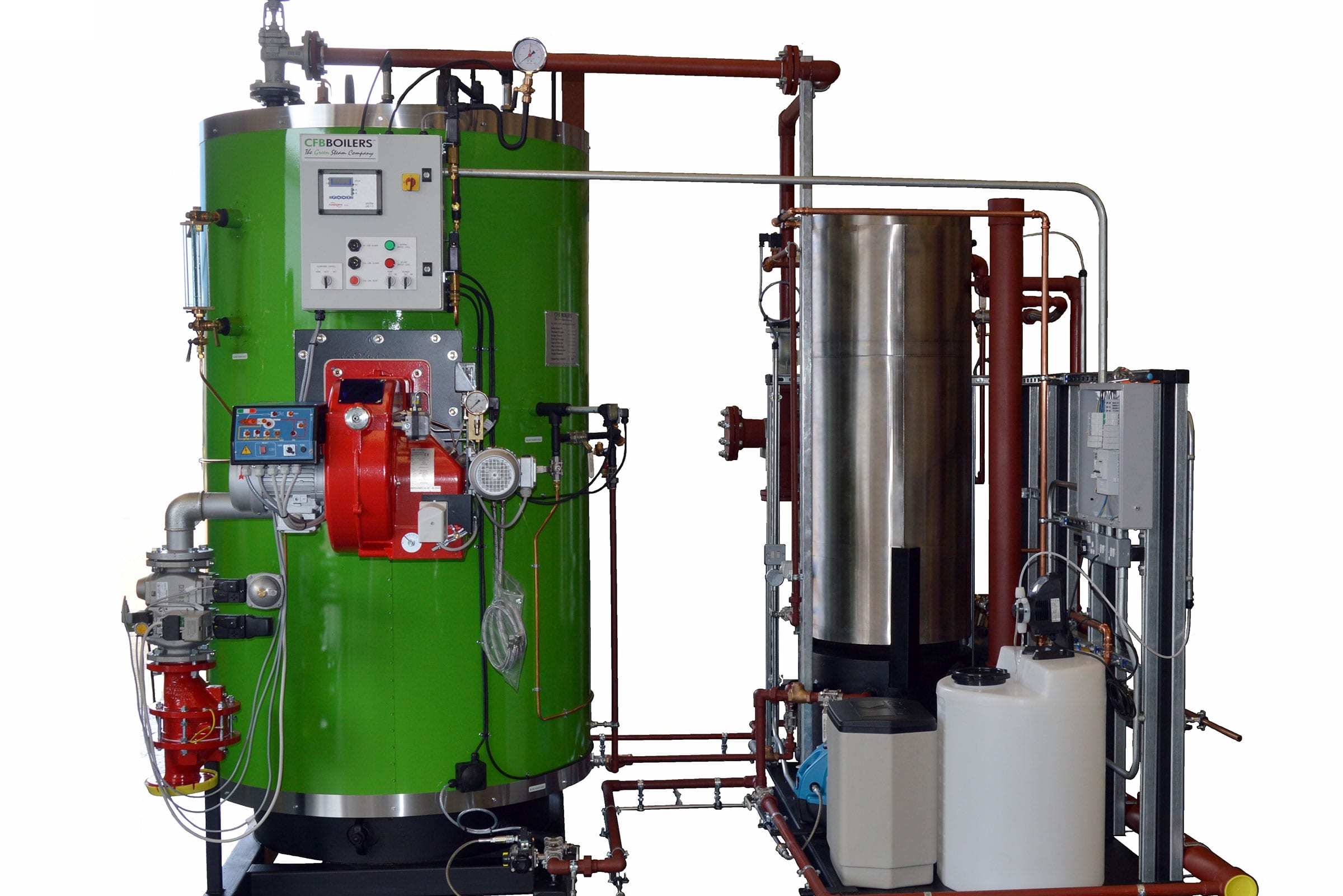Steam boilers play a vital role in both heat and power processes. Your operation relies on this equipment day in and day out, so there isn’t much wiggle room when it comes to the reliability of your steam boiler(s). Failures or malfunctions can be extremely costly. Not only can these issues put a huge dent in your company’s earnings, but they are also a massive safety issue.
Staying on your toes and knowing when to perform necessary upkeep or even replace your steam boiler can save you from potential downtime. If you want to prevent a dire or emergency situation, you’re going to need to understand what areas of your boiler are most susceptible and what may cause an issue. Operator error tends to be the most common area of concern — so knowing what types of issues could arise from user error can help you get the most time and use out of your steam boiler investment.
Depending on how well it is cared for, the average steam boiler should last anywhere between 20-30 years. When properly maintained, you’re able to get the most out of your steam boiler. That being said, eventually, you will need to make some changes and replace your equipment. But, that 20-30 year window is a long time. How do you know what to look for? How do you know when to replace your steam boiler?
We’re going to give you the top three most important factors to take into consideration when deciding whether or not you need to replace your industrial steam boiler.
Safety First
The first concern that comes to mind when deciding when its time to replace your steam boiler is the safety problems that could arise if a new boiler isn’t installed in time. More often than not, inspections by a licensed inspector will keep operators on their toes. Anything that may be missed during regular maintenance or upkeep will surely be identified by an inspector. However, leaving it all up to the inspectors is a dangerous game. You should be diligently monitoring your steam boiler and on the lookout for some of the following issues that typically arise.
1. Check for high stack temperatures
If you notice that your stack temperatures are higher than normal, it may indicate one or more of a few issues. Poor water management, low water levels, or poor combustion can create unsafe conditions due to substandard heat transfer.
2. Be on the lookout for irregular starts/stops
If you notice that there is any unusual stopping and/or starting, you may be looking at an issue with the operational controls. Safety controls may override your standard processes. If this is the case, you’ll need an accredited technician to take a look at all operating and safety devices.
3. Be mindful of excessive cycling
If you want to keep your boiler from overexerting itself, you’ll need to be mindful of excessive thermal cycling. Too many stops and starts can create this and cause fatigue in the steel.
4. Inspect for proper combustion
Proper fuel and airflow is a must for your steam boiler. If you experience issues here, you may notice surging or pulsations. Be on the lookout for combustion fan issues, improper burner adjustment, or improper stack conditions — or even possibly design.
There are essentially two ways that your steam boiler can become a safety concern. There is typically an issue with either the combustion side or water side.
Water Side Issues

Water hardness can occur when a water softener fails or the setting are wrong. This can cause scaling on the inside of the tubes which can lead to overheating (high stack temperatures).
Poor chemistry control within the water system can compromise your tubes mechanical properties and integrity. This is called caustic embrittlement.
Oxygen pitting can occur on the surface of the tubes if the water treatment or deaerator doesn’t function properly.
Steel may crack if there isn’t enough water circulation inside the boiler. Due to such high temperatures, if the steel is suddenly cooled it can become “quenched” and crack.
Combustion Side Issues
Poor tuning can cause incomplete combustion — which can lead to internal carbon deposits.
Unreliable or faulty operating controls can lead to issues with flame scanners, safety valves, pressure or temperatures switches to name a few.
Out of date equipment like controls or linkages that have become worn can cause poor fuel or air conditions.
Cost
While safety should be your first concern, the cost is certainly your worry when it comes to boiler replacement. Inefficiencies with any equipment can be costly. But, steam boiler performance can have a drastic impact on productivity and efficiencies which can come back in droves down the line.
When it comes down to getting the most out of your steam boiler, you may be dealing with parts that need repair. This is probably where most of you are at — trying to decide if you should just replace your old boiler. Well, there are a few questions we think you should ask yourself before making a decision.
- Is the cost of repair close to or as much as a new boiler?
- Is the part or parts obsolete/difficult to find?
- Are you accounting for downtime within the cost of repair?
Backup boilers can certainly help with repair downtime or just downtime in general. Replacing a boiler can be an expensive decision, but it is an investment. One that will prevent downtime, repairs, or general need for a stoppage in the near future.
Scalability

Another reason why you may need or are considering a replacement boiler is that your plant or operation’s needs have changed. Perhaps you are running an oversized boiler that is costing far too much to operate. Perhaps you need a larger boiler to fill the load that many smaller boilers are attempting to fill.
Regardless, a properly sized boiler will do wonders for your efficiencies. Taking a close look and getting an expert opinion on the most efficient models, capacity estimates, and situational needs are recommended.
Take Your Time
Don’t rush your decision-making process when replacing your boiler. Sometimes, it’s wiser to take your time and consider all of the variables, options, and benefits of getting a new industrial steam boiler. We’ve been in the industry for years and work with a handful of manufacturers and can lend a helping hand for your next investment. Feel free to reach out and contact us if you have any questions.





